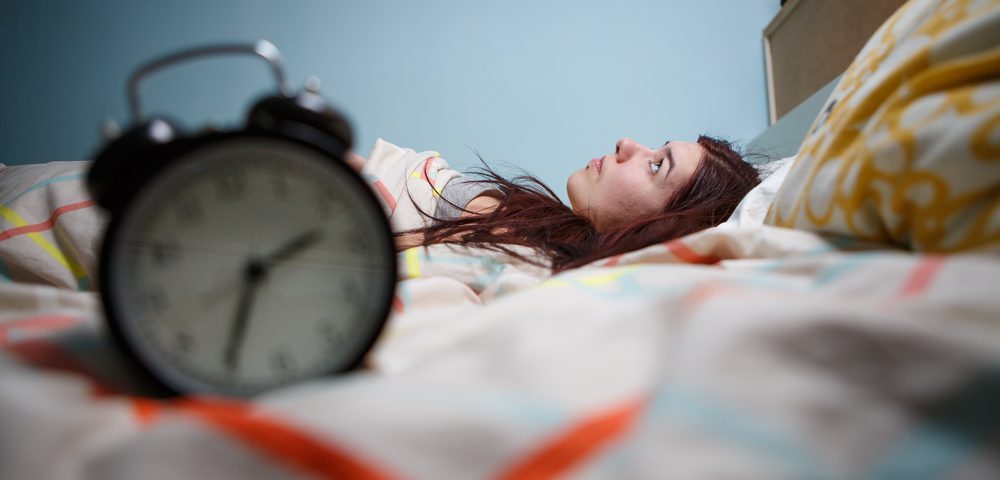FAP and Sleep

Familial amyloid polyneuropathy (FAP) is a rare genetic disorder caused by the buildup of abnormal protein clumps called amyloids throughout the body. These amyloids can affect several parts of the body, including the heart and the nervous system.
The information that follows may help you understand how FAP causes sleeping problems and offers some tips to help improve sleep quality.
How FAP may affect your sleep
Damage to the nervous system in FAP commonly leads to peripheral neuropathy. Peripheral neuropathy, which is loss of nerve function, can lead to pain, weakness, impaired sensation, and uncomfortable feelings in the limbs such as pins-and-needles or burning sensations. These painful feelings can lead to difficulty falling to sleep or staying asleep. The lack of sleep may then make the neuropathy worse, further increasing the difficulty of achieving restful sleep.
Peripheral neuropathy also can lead to restless legs syndrome and twitching that can make it harder to fall asleep. Restless legs syndrome is the uncontrollable urge to move your legs and it often occurs at night.
A study in patients with amyloid buildups in the hearts due to different conditions — including FAP — found that a large number of them had sleep-disordered breathing. Of the 22 patients with FAP, 21 had sleep-disordered breathing. Fifteen had obstructive sleep apnea and six had central sleep apnea. Obstructive sleep apnea is when the airway gets blocked during sleep. Central sleep apnea involves improper signals coming from the brain to regulate breathing. Both result in a lack of oxygen in the body that can reduce the restfulness of sleep, and also pose a risk for stroke.
Tips to improve sleep
There are a number of things you can do to help improve your quality of sleep.
Reduce the impact of neuropathy
Many patients tend to notice a worsening of their neuropathy symptoms at night. One reason could be that during the day, you are more distracted than at night so you don’t notice the symptoms as much. When trying to fall asleep, you are often more aware of your body. This may make the symptoms feel stronger. Practicing meditation or finding other things to take your mind off the symptoms, such as reading a book or listening to relaxing music, may help you fall asleep easier.
Emotions and stress may increase neuropathy symptoms. If you are having a hard time falling asleep, the symptoms may increase your stress and irritation levels, which then increase any neuropathy pain. Meditation or calming scents may help reduce stress and anxiety and encourage sleep.
There also are medications that your doctor can prescribe to reduce neuropathy pain. A review study found that gabapentin and pregabalin could improve pain and sleep in neuropathy patients. These medications may have other unwanted side effects, however. The report also found that other medications to help with neuropathic pain such as opioids or antidepressants could make sleep problems worse.
Changing your position may help with neuropathic pain. A study that looked at neuropathic pain in patients with diabetes, found that positions that reduced the elongation of the spine helped reduce the pain when sleeping. These positions included sleeping in a recliner, sleeping with a pillow under the thighs when lying on your back, a pillow under the stomach when sleeping face-down, or a pillow between the legs when sleeping on the side.
Improve breathing
For sleep-disordered breathing, a number of treatment options exist. For obstructive sleep apnea, the use of positive airway machines such as a continuous positive airway pressure (CPAP) can help keep the airways open and improve sleep. Special mouthpieces also may help to keep the jaw in alignment to allow the airways to stay open. It may help to avoid sleeping on your back, limiting alcohol consumption, quitting smoking, and losing weight.
Central sleep apnea may be related to heart function due to the buildup of amyloids. Alternatively, it could be linked to opioids you may be taking to control your neuropathy symptoms. Your doctor may be able to adjust your medications to alleviate those issues. Breathing devices such as CPAPs, supplemental oxygen, and adaptive ventilation devices also can be used to help maintain your breathing if you experience central sleep apnea.
Other tips
Limiting use of caffeine, alcohol, and nicotine, especially close to bedtime can improve the quality of your sleep.
Reducing screen time — smartphones, televisions, computers — before bed can aid in your ability to fall asleep.
Having a comfortable mattress and the right temperature in your bedroom also helps.
Last updated: March 4, 2021
***
FAP News Today is strictly a news and information website about the disease. It does not provide medical advice, diagnosis, or treatment. This content is not intended to be a substitute for professional medical advice, diagnosis, or treatment. Always seek the advice of your physician or other qualified health provider with any questions you may have regarding a medical condition. Never disregard professional medical advice or delay in seeking it because of something you have read on this website.






